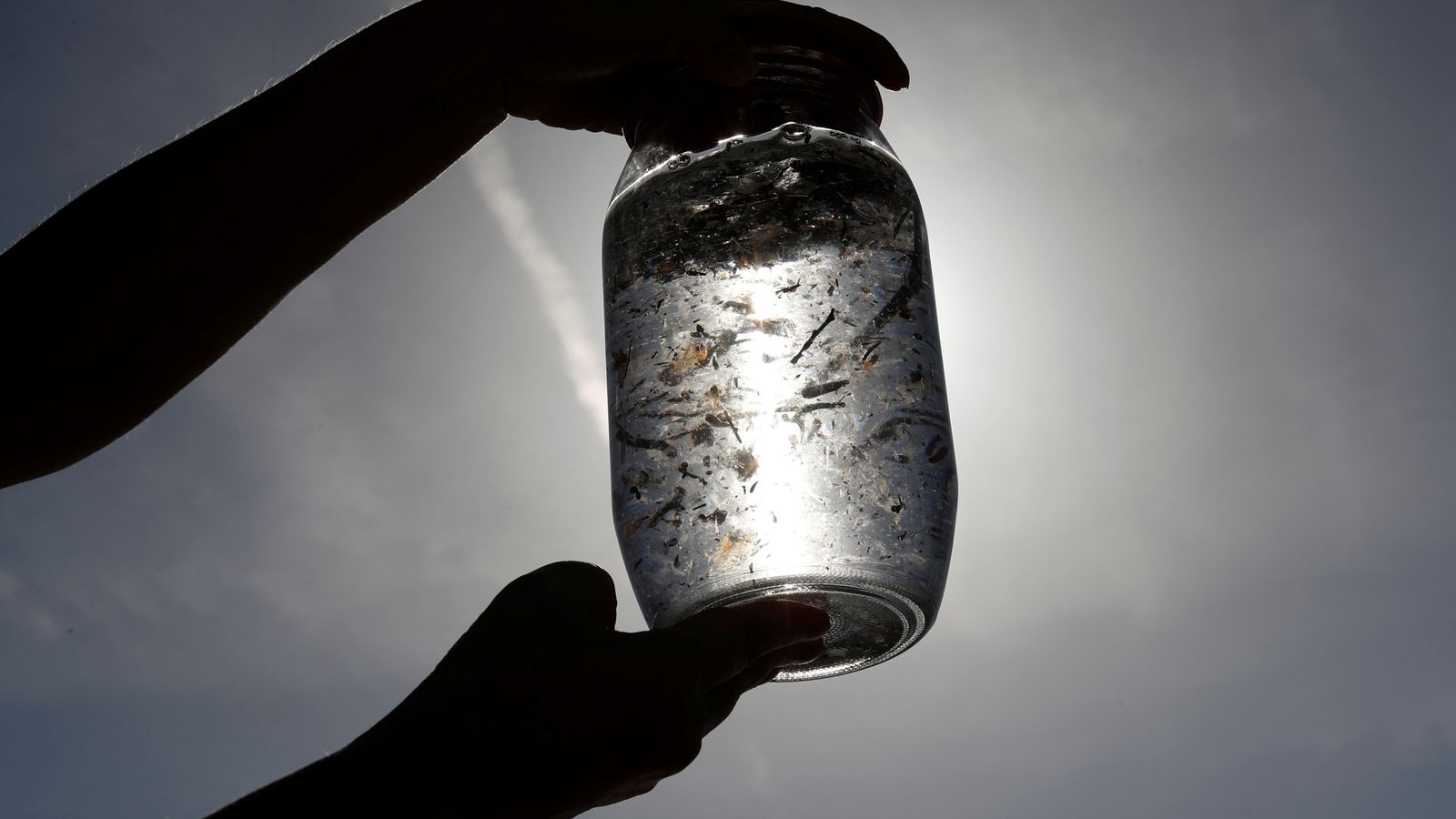Doctors have sounded the alarm on tiny plastic particles entering the human body after finding people with higher levels in blood vessels had a greater risk of stroke, heart attack and earlier death.
Scientists have known for some time microplastics are entering our bodies via the food we eat, water we drink and air we breathe.
Little is understood about the impacts they might have on health, but a new paper published on Thursday makes a “key advance” in scientists’ understanding.
The study found patients with micro- or nanoplastics in the fatty plaque in their blood vessels were much more likely to suffer a stroke, earlier death or heart attack than those whose vessels were not contaminated with plastic.
The researchers identified plastic in the blood vessels almost three in five (58%) of the 304 patients enrolled in the study in Italy.
The results were published in the peer-reviewed New England Journal of Medicine (NEJM).
The findings do not prove the plastic particles caused the heart attacks and strokes, as the patients could have been exposed to other risk factors.
Derbyshire: Waste company ordered to pay £68,500 after cyanide leak kills hundreds of fish
No wet wipes should be flushed down the loo after all, water industry says
Water bosses to face ban on bonuses – but move ‘too weak and feeble’, say Liberal Democrats
But they chime with other research that found microplastics harm human cells, released by Hull York Medical School and the University of Hull in 2021.
Prof Richard Thompson from Plymouth University’s International Marine Litter Research Unit, said: “Our laboratory studies have shown that within a few hours, nano plastics can spread from the digestive tract, via the circulatory system, throughout the body of marine organisms.”
He added: “So perhaps not surprisingly there have been recent studies showing the presence of micro or nano plastics in human blood and tissues.
“This paper makes a key advance, helping evidence the potential for associated harm.”
Please use Chrome browser for a more accessible video player
The world is producing more and more plastic, only 9% of which is successfully recycled, with the bulk ending up in landfill, incinerated or leaking into the environment, according to a new OECD report.
Plastic does not break down for at least hundreds of years.
Jo Royle is CEO of Common Seas, a campaigning organisation that in 2022 commissioned peer-reviewed research found plastic in blood.
She called the new research “profoundly worrying, but unfortunately not a shock”.
She added: “From our blood to our hearts, plastic has now infiltrated every part of our body.
“Governments globally must now act swiftly to ban harmful plastic products and unite behind a legally binding Global Plastics Treaty that recognises the threat plastic poses to human health.”
Be the first to get Breaking News
Install the Sky News app for free
In 2022, 175 governments agreed to draw up an international, legally binding agreement to end plastic pollution.
It was due to be finalised by 2024, but negotiations are ongoing.
Watch The Climate Show with Tom Heap on Saturday and Sunday at 3:30pm and 7.30pm on Sky News, on the Sky News website and app, and on YouTube and Twitter.
The show investigates how global warming is impacting people and the natural world, and highlights the solutions driving the transition away from fossil fuels.









